
A standardized test is a test that is administered and scored in a consistent, or "standard", manner. Standardized tests are designed in such a way that the questions and interpretations are consistent and are administered and scored in a predetermined, standard manner.

Teachers College, Columbia University (TC) is the graduate school of education of Columbia University, a private research university in New York City. Founded in 1887, Teachers College has served as one of the official Faculties and the Department of Education of Columbia University since 1898. It is the oldest and largest graduate school of education in the United States.

Carter Godwin Woodson was an American historian, author, journalist, and the founder of the Association for the Study of African American Life and History (ASALH). He was one of the first scholars to study the history of the African diaspora, including African-American history. A founder of The Journal of Negro History in 1916, Woodson has been called the "father of black history." In February 1926, he launched the celebration of "Negro History Week," the precursor of Black History Month. Woodson was an important figure to the movement of Afrocentrism, due to his perspective of placing people of African descent at the center of the study of history and the human experience.

Samuel Chapman Armstrong was an American soldier and general during the American Civil War who later became an educator, particularly of non-whites. The son of missionaries in Hawaii, he rose through the Union Army during the American Civil War to become a general, leading units of African American soldiers. He became best known as an educator, founding and becoming the first principal of the normal school for African-American and later Native American pupils in Virginia which later became Hampton University. He also founded the university's museum, the Hampton University Museum, which is the oldest African-American museum in the country, and the oldest museum in Virginia.
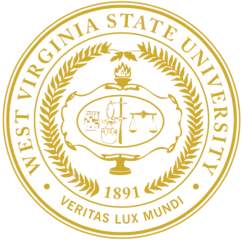
West Virginia State University (WVSU) is a public historically black, land-grant university in Institute, West Virginia. Founded in 1891 as the West Virginia Colored Institute, it is one of the original 19 land-grant colleges and universities established by the second Morrill Act of 1890, which evolved as a diverse and inclusive campus. Following desegregation, WVSU's student population slowly became more white than black. As of 2017, WVSU's student body was 75% white and only 8% African-American.
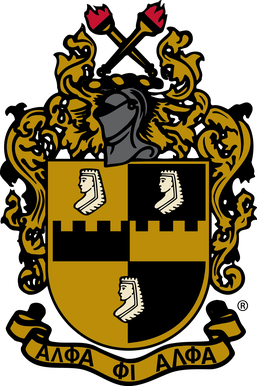
Alpha Phi Alpha Fraternity, Inc. (ΑΦΑ) is the oldest intercollegiate historically African American fraternity. It was initially a literary and social studies club organized in the 1905–1906 school year at Cornell University but later evolved into a fraternity with a founding date of December 4, 1906. It employs an icon from Ancient Egypt, the Great Sphinx of Giza, as its symbol. Its aims are "Manly Deeds, Scholarship, and Love For All Mankind," and its motto is "First of All, Servants of All, We Shall Transcend All." Its archives are preserved at the Moorland-Spingarn Research Center.

Southeastern Oklahoma State University is a public university in Durant, Oklahoma. It had a total enrollment of 5,376 in 2022.
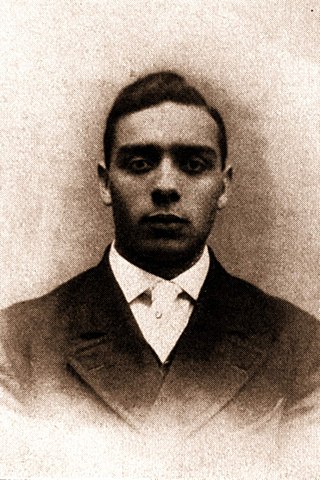
Edwin Bancroft Henderson, was an American educator and National Association for the Advancement of Colored People (NAACP) pioneer. The "Father of Black Basketball", introduced basketball to African Americans in Washington, D.C., in 1904, and was Washington's first male African American physical education teacher. From 1926 until his retirement in 1954, Henderson served as director of health and physical education for Washington, D.C.'s black schools. An athlete and team player rather than a star, Henderson both taught physical education to African Americans and organized athletic activities in Washington, D.C., and Fairfax County, Virginia, where his grandmother lived and where he returned with his wife in 1910 to raise their family. A prolific letter writer both to newspapers in the Washington, D.C., metropolitan area and Alabama, Henderson also helped organize the Fairfax County branch of the NAACP and twice served as President of the Virginia NAACP in the 1950s.
Elliot Wayne Eisner was a professor of Art and Education at the Stanford Graduate School of Education, and was one of the United States' leading academic minds. He was active in several fields including arts education, curriculum reform, qualitative research, and was the recipient of a University of Louisville Grawemeyer Award in 2005 for his work in education as well as the Brock International Prize in 2004. In 1992, he became the recipient of the José Vasconcelos World Award of Education in recognition to his 30 years of scholarly and professional work, particularly his contribution in the formulation of educational policy to better understand the potential of the arts in the educational development of the young. He was the 1997 recipient of the Sir Herbert Read Award of the International Society for Education through Art (INSEA).

Nellie Pratt Russell was an incorporator of Alpha Kappa Alpha Sorority, Incorporated, the first sorority founded by African-American college women. The sorority has continued to generate social capital for over 110 years.

Margaret Flagg-Holmes was one of the sixteen founders of Alpha Kappa Alpha Sorority, Incorporated, at Howard University in Washington, DC. It was the first sorority founded by African-American women.
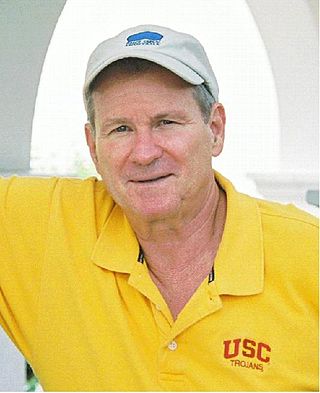
Fenwick W. English is an education professor.
Hollis Leland Caswell was an American educator who became an authority on curriculum planning in schools. He directed surveys of curriculum practices in several school systems, and wrote several books on the subject.

Mary Virginia Gaver was a United States librarian. She was considered by one source to be one of the most important leaders in library science in the 20th century.
The National Association for Music Education (NAfME) is an organization of American music educators dedicated to advancing and preserving music education as part of the core curriculum of schools in the United States. Founded in 1907 as the Music Supervisors National Conference (MSNC), the organization was known from 1934 to 1998 as the Music Educators National Conference. From 1998 to 2011 it was known as "MENC: The National Association for Music Education." On September 1, 2011, the organization changed its acronym from MENC to NAfME. On March 8, 2012, the organization's name legally became National Association for Music Education, using the acronym "NAfME". It has approximately 45,000 members, and NAfME's headquarters are located in Reston, Virginia.

M Street High School, also known as Perry School, is a historic former school building located in the Northwest Quadrant of Washington, D.C. It has been listed on the District of Columbia Inventory of Historic Sites since 1978 and it was listed on the National Register of Historic Places in 1986. The building escaped demolition with community support and the efforts of preservationists and is now a community center.
Harrison Benjamin Wilson Jr. was an American health educator and college basketball coach who served as the second president of Norfolk State University from 1975 to 1997.
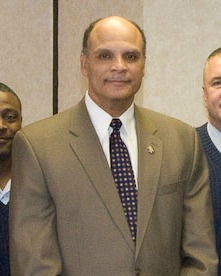
Harold L. Martin Sr. is an American engineer, educator, former chancellor of Winston-Salem State and current chancellor of North Carolina Agricultural and Technical State University. He is the first alumnus in the history of North Carolina A&T to hold the position of Chancellor. Under his leadership, N.C. A&T has become the nation's largest historically black university (HBCU), its top-ranked public HBCU and North Carolina's third most productive public research university. It has also increased its standing as a land-grant institution and doctoral research university.
J. Eugene Grigsby was a multimedia artist and educator. His primary mediums were printmaking and painting; his style of painting was abstract and expressionistic. Grigsby was an influential educator for both college and high school students. He was also heavily involved with community programs focused on uplifting lower socio-economic communities.
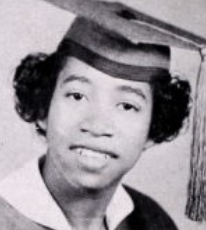
Delores Ann Richburg Greene was an American educator based in Virginia. She was a dean of two colleges of education, at Virginia Union University and at Virginia State University.














